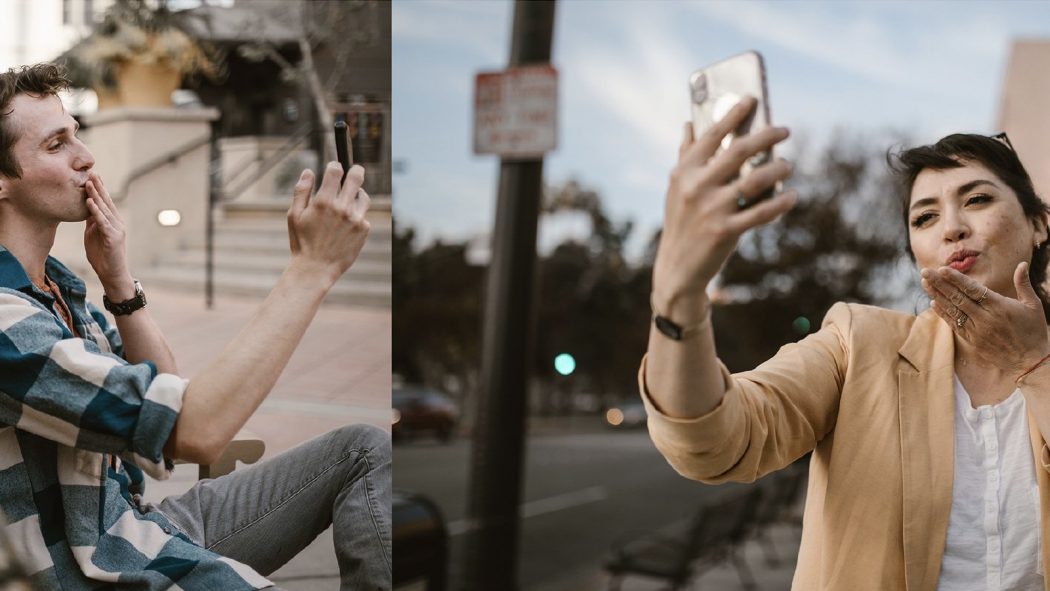Jake* and Claire* have been linked together since before they were born. Their mothers attended the same yoga class while they were pregnant and, after finding out they lived in the same neighbourhood, resolved to take their soon-to-be-born children to each other’s cottages. After an on and off relationship spanning elementary to high school, they officially started dating again in September 2020. For about a year, they were able to see each other every day, taking advantage of the 5-minute walk that separated their homes. Then, Jake moved away for university.
It’s a big decision when couples move away and must decide to either break up or endure the infamous LDR. A quick Google search for advice will bring up a multitude of faceless lifestyle bloggers who strongly advise you break up and move on with the next chapter of your life— even the Huffington Post weighs in and tries to not-so-subtly guide the reader along the breakup process. But lately, it seems that people are more open to the idea of long distance relationships (since the pandemic began, OkCupid has seen an 83% increase in new users setting their location preference to ‘anywhere’), especially first year university students who choose to stay with their significant other from high school. For many of these couples, staying together seems like the obvious choice.
“It wasn’t really a decision as much as we just knew we wanted to stay together.”
As cheesy as it sounds, I believe the reasoning behind this decision is love. Although it is hard to be physically apart, every relationship comes with its own unique challenges and distance is just another one to overcome. If it is love, the feeling will persist through any obstacle. It also implies that people these days are more serious about dating, or at least value different things than our predecessors. Whether it be a shift in preferred love languages (quality time and words of affirmation take the cake) or a deeper emphasis on trust and communication, people have come to desire a deeper level of connection in their relationships, to the point where a future apart is unimaginable. “It wasn’t really a decision as much as we just knew we wanted to stay together,” says Jake about their girlfriend (1 ½ years together, 109 kilometers apart). “Breaking up was never an option.”
The same rings true for couples who haven’t known each other since birth. If the connection is deep enough, moving forward with a long-distance relationship should feel like a natural progression. Taylor* and her partner (2 months, 442 kilometers) decided they’d be doing long distance the day they started dating, about a year and a half after they first became friends online. “It wasn’t easy because I knew they were going to Waterloo and I’d be at Ottawa,” she says, “And I wasn’t sure about starting off the bat a new relationship 6 hours from each other. Although after we met, I fell pretty damn hard and so did they, so we decided to just […] give it a go.”
After taking that leap of faith, the only thing left to do is put in the work. Commitment is another thing that scares people about long-distance. How much extra time would you have to devote to a person who’s not physically there? What would you give up to maintain that relationship? If the relationship is strong, spending time with them wouldn’t feel like a sacrifice. In fact, it would be a grounding and comforting activity in the face of a new environment. “It’s hard to be away from the person whose literal presence will make you feel better, especially during the adjustment to university,” says Maya* about moving away from her boyfriend (1 ½ years, 161 kilometers). It would be even harder to completely lose that person in a breakup. Rather than going for a completely fresh start, it’s important to have someone who truly knows and cares about you to help you navigate life.
But many would say that online interactions can’t compare to in person ones, so how can we be expected to maintain the same level of connection in a relationship? In some ways this claim is valid, and consequently it is important to make plans to see one another in person. However, the advent of the COVID-19 pandemic has definitely helped shift people’s minds regarding remote dating and finding new ways to connect. Especially since every other aspect of our lives is online now, maintaining a relationship through a virtual sphere doesn’t seem like an extra challenge; the fact that we have grown more accustomed to forming online connections gives us more reason to continue dating despite the distance. For Naomi* and her boyfriend (2 months, 541 kilometers), finding new ways to connect online has been a fun experience: “Before, I’d only thought of talking on FaceTime, but now there are things like Netflix Party […] we can also quietly do homework together, and crosswords.”
Commitment is another thing that scares people about long-distance. How much extra time would you have to devote to a person who’s not physically there?
When asked about the hardest part of long distance, Jake says it’s that “whenever we get into arguments, we can’t talk about it in person”. Like every couple, Jake and Claire have their rough patches. But they have yet to face a challenge they couldn’t overcome together, including distance. Despite what some may say, it is worth it to try and make long-distance work. The ups and downs are no different than in any other relationship, and a good partner shouldn’t hold you back from trying new things and growing as an individual. If you’re both committed and fulfilled in your relationship, my advice is to hold onto it! Moving apart shouldn’t be the sole reason to break up. After all, distance makes the heart grow fonder.
*Names have been changed for privacy.








